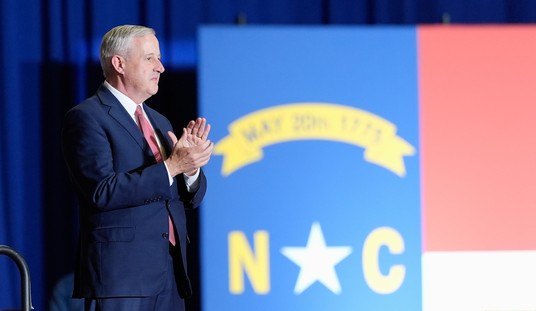As much as some in conservative circles want it to be true, libertarianism is not on the way out. In fact, the liberty movement has plenty of opportunities to start making inroads and winning over more minds if it approaches politics differently from what it has in the past.
I came across an article by Brian Hawkins in The Federalist in which he argues that libertarianism is “ill-equipped” when it comes to saving America. The author rightly acknowledged that in this current election cycle, there is “not an explicitly nor implicitly identified libertarian candidate” and pointed to past races in which leaders like Ron Paul, Jack Kemp, and Steve Forbes took up this mantle.
Still, he goes on to assert that “libertarianism’s political triumph was short-lived.”
It is true that, at least for a season, more Republicans were adopting more libertarian approaches to issues like marijuana, criminal justice reform, and foreign policy. In several ways, they still are. But from where I sit, most with libertarian leanings, including myself, became disenchanted with a Republican Party that still wanted to embrace more government that we were comfortable with.
However, if the GOP is getting less libertarian, it does not necessarily mean that the ideology isn’t still an essential component of saving America.
The first reason Hawkins gives for the shift away from libertarianism is the COVID-19 pandemic:
America’s response to the pandemic exposed two fundamental truths that libertarianism was ill-equipped to answer: First, our institutions have been seized by ideological activists who have weaponized them against core American values; second, the left is on an evangelizing mission to impose its values across society unless resisted.
The author goes on to argue that the pandemic “exposed the deep moral rot of key institutions” that have “revealed themselves as political activists weaponizing their unique positions of authority to enact the left’s political agenda."
Hawkins is absolutely spot-on in this observation. But then he brings up the critical race theory issue and said, “Many libertarians claimed CRT was protected by academic freedom.”
While some did make this assertion, many more found fault with the overall effort to indoctrinate children through the government-run school system. Indeed, this doesn’t only involve race but also sexuality and gender ideology. Libertarians like myself had no problem with most of the laws intended to stop actual indoctrination, but we also pointed out that these laws in and of themselves would do little to address the issue. I have pointed out how teachers are getting around these laws and continuing to include this ideology in their teachings.
From a liberty-focused perspective, the most powerful weapon parents have against leftist indoctrination efforts is school choice – the ability to send one’s children to schools that aren’t telling them that they are oppressors and oppressed and that they can switch their gender at will. When parents can place their children at sane private schools or homeschool more easily, then it becomes almost impossible for leftists to brainwash them into their ideology.
Hawkins also points out that leftists “won’t leave you alone” and that they have “a missionary zeal to impose their mores upon society.” Again, he is absolutely correct. But the solution is not to continue empowering the government they are using to force their silly beliefs on the rest of us. Rather, the right move is to actually weaken the government and nullify its overreach.
So if libertarianism isn’t the solution, then what is? The author notes that “liberty requires virtue” and that without virtue, “institutions and culture will inevitably culminate in tyranny and social disorder.”
Then, he makes the contention that “libertarianism is at best agnostic on the need for a state to cultivate individual virtue.”
Hawkins then notes that “the conservative appreciates that in a free society, the state must proactively promote social virtue to prevent society from descending into cultural degradation.”
His first point is incorrect.
As libertarians, we are not “agnostic” on the idea that the state should use force to “cultivate virtue,” we are adamantly against it. Yes, we do believe that a virtuous society should be the objective – but we do not believe that a small group of flawed people calling themselves the government should possess the authority to compel people to be virtuous. Indeed, by definition, one cannot be virtuous because someone is using the threat of state violence to force them to be virtuous.
If we wish to be a people of virtue, then we must take that on ourselves as a community and nation instead of outsourcing our morality and goodness to this small group of people, most of whom aren’t very moral or good themselves. In my estimation, the most pernicious mistake we have made as a country is abdicating our responsibility to the state to address societal ills such as prostitution, drug addiction, and others. In this way, believing we can use the power of the government to compel people to behave has made us less virtuous.
Of course, this isn’t to say a governing authority should not check human behavior. The proper role of a government is to protect our rights from those seeking to violate them, not to control someone’s morality. The state should punish and stop those who kill, steal, and destroy. But when it comes to personal morality, it is up to the individual and society to regulate themselves instead of relying on men with guns and badges to do it.











